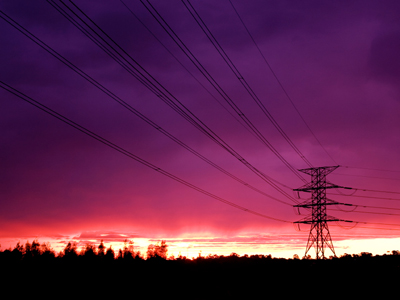
Electricity - Methods we use to Generate Electricity
As part of their work on electricity in GCSE Physics, students will look at some of the methods used to generate electricity for homes and industry. In this quiz we take a look at the advantages and disadvantages of fossil fuels, nuclear energy and renewable sources of electricity.
Fossil fuels are still the main source of the world's energy. When they are burnt, they release pollutant gases into the atmosphere which are believed to contribute to both global warming and acid rain. The realisation that burning fossil fuels is probably harming the planet, which could ultimately harm the human race, has meant that many countries are attempting to use fewer fossil fuels. Instead they are using more renewable methods, such as the Sun, wind and water, in order to generate electricity. There are also an increasing number of electrically powered vehicles on the roads which is helping to reduce the emissions of polluting gases.
One alternative to fossil fuels is a non-renewable source - nuclear power. A nuclear power station generates electricity in the same way as a conventional fossil fuel power station: steam is used to turn turbines that turn generators to produce the electricity. Where it differs is that the heat comes from the radioactive decay of atoms in the fuel rods in the nuclear reactor. Since the heat does not come from the burning of fuels, no polluting gases are released. The pollution problem arises in different ways. If there is a leak from the power station, as has happened several times since nuclear power stations were developed, it is usually highly radioactive. When the nuclear fuel is spent it means that it cannot generate enough heat to make the steam. It has to be replaced and the spent fuel needs to be disposed of. The problem with that is that it is still radioactive and could remain radioactive for centuries. Storing it out of harm's way is the biggest problem for the industry. Despite this, many countries have nuclear power stations but more and more plans are being put in place to use cleaner and renewable methods of generating electricity.
One of the problems faced by the companies that supply electricity to homes and industry is the surges in demand at certain times of day, like at breakfast time when millions of homes around the UK switch on toasters and kettles or at peak television watching times. This is mainly solved by the National Grid, which connects power stations together and connects them to homes and businesses. Not all power stations operate at full capacity all of the time, some can be more or less switched off and on when required. Coal fired and nuclear power stations are difficult to switch on and off quickly so they are used to generate electricity all of the time. Gas fired power stations are cleaner than other fossil fuel fired power stations and also can be started and stopped relatively quickly. The fastest power stations to start up are hydroelectric, such as the Dinorwig pumped hydroelectric power station in North Wales. Water is pumped up to a storage reservoir high in the hills using cheap off-peak electricity overnight. When there is a surge in electricity demand, this station can be started immediately, ensuring that there is sufficient electrical energy in the National Grid to cover the surge demand. Dinorwig can go from off to full power in 16 seconds.
Ready for more?
not all...
quizzers. Try to win a coveted spot on our Hall of Fame Page.







